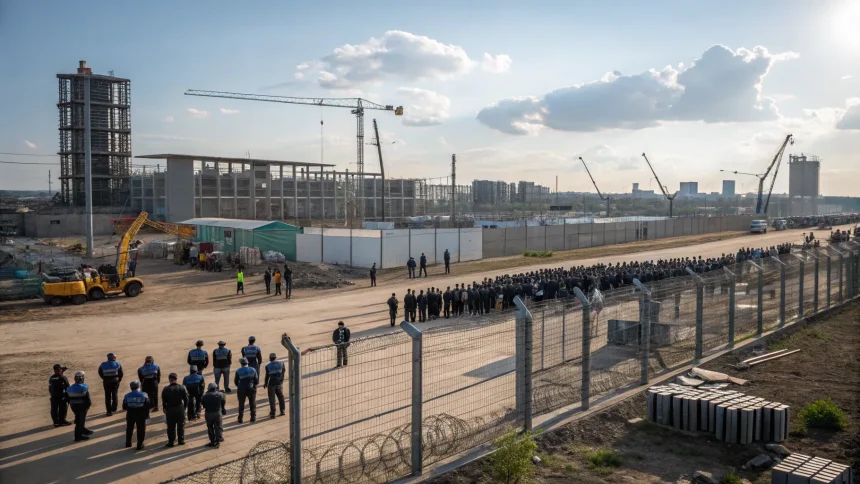Approximately 450 workers have been detained at a South Korean automaker’s construction site in Georgia, according to recent reports. The group includes 30 South Korean nationals among those held by authorities.
The mass detention occurred at the automaker’s developing facility in Georgia, though specific details about the timing and circumstances remain limited. This incident marks a significant development for the automotive manufacturing project that has been establishing roots in the southeastern United States.
Details of the Detention
While the full scope of the situation continues to unfold, initial reports indicate that the vast majority of those detained—approximately 420 individuals—are not South Korean citizens. The remaining 30 detainees are South Korean nationals, suggesting this may involve questions about work authorization or immigration status.
The large number of workers involved points to a major operation at the construction site. Authorities have not yet released information about the specific reasons for the detention or which agencies conducted the action.
Impact on Automotive Manufacturing
The South Korean automotive industry has expanded its manufacturing presence in the United States in recent years, with several major companies establishing production facilities across the country. Georgia has become an attractive location for automotive manufacturing due to its transportation infrastructure, business-friendly policies, and access to ports.
This detention could potentially disrupt construction timelines for the facility, which represents a substantial investment in the state’s manufacturing sector. The automotive plant was expected to create thousands of jobs and contribute significantly to the local economy upon completion.
Labor and Immigration Questions
The detention raises questions about labor practices and immigration enforcement at major international manufacturing sites in the United States. Construction of large-scale automotive facilities often involves complex contractor relationships and international workforce components.
Similar incidents at other manufacturing sites have typically involved investigations into:
- Work visa compliance
- Labor contractor practices
- Documentation verification
- Safety and labor regulations
Neither the automaker nor federal authorities have issued comprehensive statements about the specific allegations or circumstances surrounding the detention.
The situation highlights the complicated nature of international business operations in the United States, particularly in industries that rely on specialized construction techniques and international expertise during facility development phases.
As this story develops, both South Korean officials and U.S. authorities will likely address the status of the detained workers and the future of the manufacturing project. The incident may also prompt broader discussions about workforce verification processes at major international development projects throughout the country.









